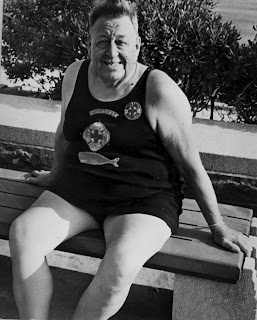Wilbert E. Longfellow, a writer for the Providence (RI) Telegram, was inspired to reverse the nation's alarming drowning rate, which, unless curbed, would assume the proportions of a national tragedy. Longfellow proposed a radical change to contemporary practice--teach water safety in water instead of on land. Practicing what he preached, he traveled around the nation teaching policemen, boy scouts and YMCA groups.
In 1905, the U.S. Volunteer Life Savings Corps recognized his work by awarding him the title of "Commodore" and, in 1910, following a remarkable recovery from tuberculosis of the spine, he was appointed to a salaried post, Commodore-in-Chief of the U.S. Volunteer Life Saving Corps.
In 1912, he presented a plan to the American Red Cross to "waterproof America." The organization adopted the plan in 1914 and proceeded to pioneer a new service entitled "water first aid." Although the American National Red Cross' Life Saving Corps was part of the First Aid Department, it was years before the Commodore earned a first-aid certificate because the doctors teaching first aid "were so busy with their program and I with mine that our paths seldom crossed."
Longfellow died on March 18, 1947, three months after his retirement. To the end, his slogan remained: "Every American a swimmer, every swimmer a lifesaver!"






No comments:
Post a Comment